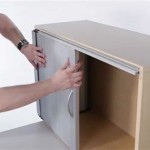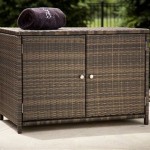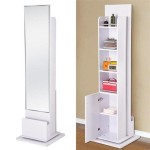Making Cabinet Handle Jigs: A Comprehensive Guide to Essential Aspects
Cabinet handle jigs are indispensable tools for precise and efficient installation of cabinet handles and knobs. By utilizing a jig, you can align handles accurately, ensuring a polished and professional finish to your cabinetry. Here are the essential aspects to consider when making your own cabinet handle jig:
Materials:
Choose durable and sturdy materials for your jig. Consider using medium-density fiberboard (MDF), plywood, or acrylic. The thickness of the material should be appropriate for the size of the jig and the handles you plan to install.
Design:
Determine the size and shape of the jig based on the handles you intend to use. The jig should have a flat base for stability and holes that align with the handle mounting holes. Consider incorporating additional features, such as a center line for precise handle placement.
Accuracy:
Precision is paramount when making a cabinet handle jig. Use a ruler, measuring tape, and square to ensure accurate measurements and hole placement. Double-check all dimensions before drilling any holes.
Hole Spacing:
Determine the standard hole spacing for the handles you are using. This spacing can vary depending on the handle type and manufacturer. Accurately mark and drill the holes on your jig accordingly.
Ease of Use:
Design your jig for ease of use. Create a comfortable handle for steady holding and consider adding a non-slip base to prevent the jig from moving during installation. Make sure the jig can be easily aligned with the cabinet face.
Durability:
Ensure the longevity of your jig by using durable materials and construction techniques. Reinforce the jig with additional support or bracing if necessary. A well-made jig can withstand repeated use and remain accurate over time.
Customization:
Consider customizing your cabinet handle jig to suit your specific needs. You can adjust the size or shape to accommodate different handle sizes or styles. Additionally, you can add extra holes or features to enhance functionality.
Testing:
Before using your cabinet handle jig on actual cabinets, test it on a scrap piece of wood. This allows you to confirm its accuracy and make any necessary adjustments. Ensure the handles align correctly and mount securely.
Conclusion:
Making a cabinet handle jig is a rewarding woodworking project that can save you time and effort during handle installation. By following these essential aspects, you can create a durable, precise, and user-friendly jig that will ensure a professional-looking finish to your cabinetry.

Simple Homemade Jig For Cabinet Door Pulls

Simple Homemade Jig For Cabinet Door Pulls

How To Use A Drilling Jig For Cabinet Handles And Knobs

Making A Jig To Install Cabinet Pulls

Levoite Cabinet Hardware Jig Pull Handle Drill Guide

True Position Tools Cabinet Hardware Jig For Installation Of Handles And Knobs On Doors Drawer Fronts Tp 1934 The Home Depot

This Jig Is The Quickest Most Consistent Way To Install Cabinet Hardware

True Position Tools Cabinet Hardware Jig For Installation Of Handles And Knobs On Doors Drawer Fronts Tp 1934 The Home Depot

Diy Cabinet Handle Jig Quick Easy

Let S Make A Cabinet Hardware Jig Flipping The Flip
Related Posts








